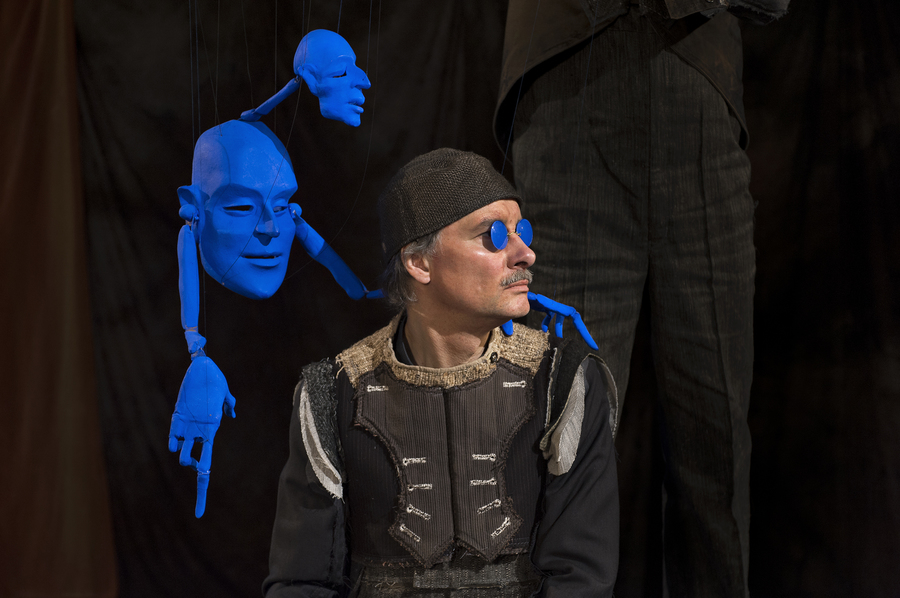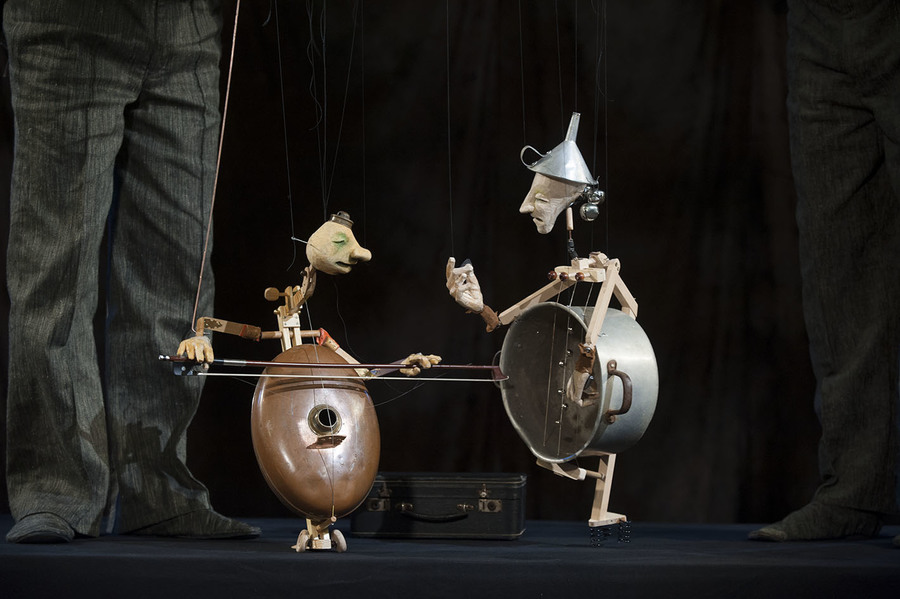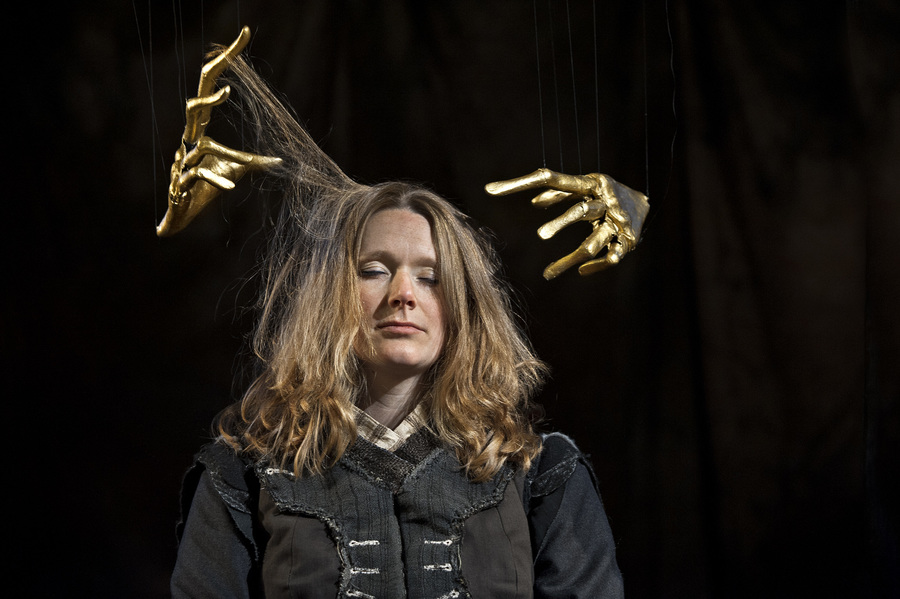Wunderkammer @ Traverse Theatre, Edinburgh
Figurentheater Tüebingen's new show is a step into the lore, evolution and mythos of the world of puppetry
Showing as part of the 12th manipulate festival is Figurentheater Tüebingen's Wunderkammer; a cabinet of curios created by Alice Therese Gottschalk which offers up both the limitless possibilities (and drawbacks) of puppetry through sketch-like vignettes.
At first, concealed within a box are gilded hands which soon hang above our performers for the evening. These marionette appendages serve as a frame, pulling the strings of the handlers as they guide us through their eclectic collection. Far from the Dickensian curiosity shop of old, Wunderkammer is a step into the world’s lore, evolution and mythos. Each are unveiled by one of a trio of exceptional puppeteers, from Modernist-style limbs of solid colour to stripped back rod-puppets.
Wunderkammer is at its tightest when at its most simplistic, though not necessarily in construction, more in narrative or motive – the effort involved in crafting even the ‘simplest’ of puppets is a tremendous deal. The more effective scenes are ones like the small figure flying a kite; the emotion conveyed through torn tissue, plastic and crafted pieces brings us a faerie trying out its first steps and a creature from the depth’s travels through the open sea.
These various marionettes play with realms we desire – they exist in the physical but can glide, float and remain weightless at any moment. They have the ability to toy with reality, sculpting gravity around the puppet’s space and make for the show's most ethereal moments.
With so many large-scale productions relying on style over substance, Figurentheater Tüebingen defy this; they place weaknesses, such as reliance on a performer or strings, at the forefront. Incorporating both into the piece, interacting with performers and using their strings of life as playthings, branches and swings.
Where they push for repetition, the piece falls short. The gilded hands paired in reappearance by two Picasso-style puppets outstay their welcome slightly. Their comedic stints work, at first, but the longer we dwell on them the more their charm ebbs. These sequences could benefit tremendously from the old adage ‘less is more’.
Wunderkammer brings intricacy of the marionette puppetry to the Traverse. In conception, it's timeless but lacks structure. A grand narrative is never necessary, but something weaving the pieces together is needed. Alone, almost every short is spectacular, but collectively they highlight the piece's weaker sections.


